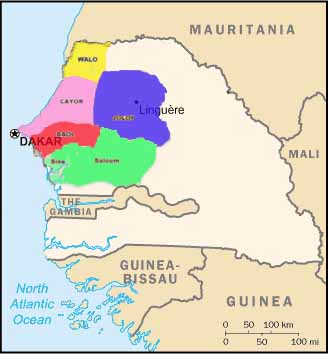|
Demba Diawara
Demba Diawara (born c. 1931) is an imam and village leader of Keur Simbara in Senegal. He is known for his leadership in encouraging village communities to abandon the tradition of female genital cutting. He knew of the first declarations at the Senegalse village of Malicounda Bambara to abandon FGC in 1997 and he led his village and many more to the first multilateral announcement at Diabougou in 1998. Life Diawara was born in about 1931. He is an imam and a chief of the small, but now well known, village of Keur Simbara in western Senegal.Demba and the village of Keur Simbara Rina Jimenez-David, 4 December 2011, Philippine Daily Inquirer, Retrieved 23 December 2015 Unilateral declaration and problem Diawara had been initially concerned in 1997 when he heard that ...[...More Info...] [...Related Items...] OR: [Wikipedia] [Google] [Baidu] |
Female Genital Cutting
Female genital mutilation (FGM), also known as female genital cutting, female genital mutilation/cutting (FGM/C) and female circumcision, is the ritual cutting or removal of some or all of the external female genitalia. The practice is found in some countries of Africa, Asia and the Middle East, and within communities abroad from countries in which FGM is common. UNICEF estimated, in 2016, that 200 million women in 30 countries—Indonesia, Iraq, Yemen, and 27 African countries including Egypt—had been subjected to one or more types of FGM. Typically carried out by a traditional circumciser using a blade, FGM is conducted from days after birth to puberty and beyond. In half of the countries for which national statistics are available, most girls are cut before the age of five. Procedures differ according to the country or ethnic group. They include removal of the clitoral hood (type 1-a) and clitoral glans (1-b); removal of the inner labia; and removal of the inner and ou ... [...More Info...] [...Related Items...] OR: [Wikipedia] [Google] [Baidu] |
Wolof Language
Wolof (; Wolofal: ) is a language of Senegal, Mauritania, and the Gambia, and the native language of the Wolof people. Like the neighbouring languages Serer and Fula, it belongs to the Senegambian branch of the Niger–Congo language family. Unlike most other languages of the Niger-Congo family, Wolof is not a tonal language. Wolof is the most widely spoken language in Senegal, spoken natively by the Wolof people (40% of the population) but also by most other Senegalese as a second language. Wolof dialects vary geographically and between rural and urban areas. The principal dialect of Dakar, for instance, is an urban mixture of Wolof, French, and Arabic. ''Wolof'' is the standard spelling and may also refer to the Wolof ethnicity or culture. Variants include the older French , , , Gambian Wolof, etc., which now typically refers either to the Jolof Empire or to jollof rice, a common West African rice dish. Now-archaic forms include ''Volof'' and ''Olof''. English is believed ... [...More Info...] [...Related Items...] OR: [Wikipedia] [Google] [Baidu] |
People From Thiès Region
A person ( : people) is a being that has certain capacities or attributes such as reason, morality, consciousness or self-consciousness, and being a part of a culturally established form of social relations such as kinship, ownership of property, or legal responsibility. The defining features of personhood and, consequently, what makes a person count as a person, differ widely among cultures and contexts. In addition to the question of personhood, of what makes a being count as a person to begin with, there are further questions about personal identity and self: both about what makes any particular person that particular person instead of another, and about what makes a person at one time the same person as they were or will be at another time despite any intervening changes. The plural form "people" is often used to refer to an entire nation or ethnic group (as in "a people"), and this was the original meaning of the word; it subsequently acquired its use as a plural form of ... [...More Info...] [...Related Items...] OR: [Wikipedia] [Google] [Baidu] |
1930s Births
Year 193 ( CXCIII) was a common year starting on Monday (link will display the full calendar) of the Julian calendar. At the time, it was known as the Year of the Consulship of Sosius and Ericius (or, less frequently, year 946 ''Ab urbe condita''). The denomination 193 for this year has been used since the early medieval period, when the Anno Domini calendar era became the prevalent method in Europe for naming years. Events By place Roman Empire * January 1 – Year of the Five Emperors: The Roman Senate chooses Publius Helvius Pertinax, against his will, to succeed the late Commodus as Emperor. Pertinax is forced to reorganize the handling of finances, which were wrecked under Commodus, to reestablish discipline in the Roman army, and to suspend the food programs established by Trajan, provoking the ire of the Praetorian Guard. * March 28 – Pertinax is assassinated by members of the Praetorian Guard, who storm the imperial palace. The Empire is auctioned off ... [...More Info...] [...Related Items...] OR: [Wikipedia] [Google] [Baidu] |
Senegalese Imams
Senegal,; Wolof: ''Senegaal''; Pulaar: 𞤅𞤫𞤲𞤫𞤺𞤢𞥄𞤤𞤭 (Senegaali); Arabic: السنغال ''As-Sinighal'') officially the Republic of Senegal,; Wolof: ''Réewum Senegaal''; Pulaar : 𞤈𞤫𞤲𞤣𞤢𞥄𞤲𞤣𞤭 𞤅𞤫𞤲𞤫𞤺𞤢𞥄𞤤𞤭 (Renndaandi Senegaali); Arabic: جمهورية السنغال ''Jumhuriat As-Sinighal'') is a country in West Africa, on the Atlantic Ocean coastline. Senegal is bordered by Mauritania to the north, Mali to the east, Guinea to the southeast and Guinea-Bissau to the southwest. Senegal nearly surrounds the Gambia, a country occupying a narrow sliver of land along the banks of the Gambia River, which separates Senegal's southern region of Casamance from the rest of the country. Senegal also shares a maritime border with Cape Verde. Senegal's economic and political capital is Dakar. Senegal is notably the westernmost country in the mainland of the Old World, or Afro-Eurasia. It owes its name to the Sene ... [...More Info...] [...Related Items...] OR: [Wikipedia] [Google] [Baidu] |
.jpg)
_2.jpg)

_1938.jpg)
